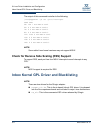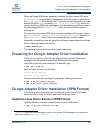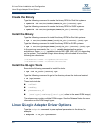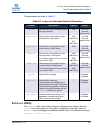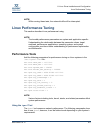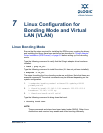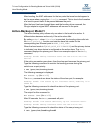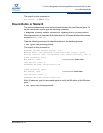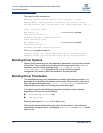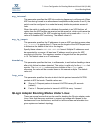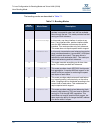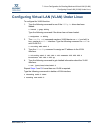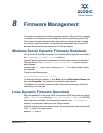
7–Linux Configuration for Bonding Mode and Virtual LAN (VLAN)
Linux Bonding Mode
7-2 NE0154601-00 A
After bonding, the MAC addresses for the two ports that were bonded appear to
be the same when running the ifconfig command. This is due to the formation
of a bond to permit traffic to be passed between the ports.
After the bond has been brought down and the bonding driver removed, the
QLogic adapter’s original MAC addresses will resume on the ports.
Active-Backup or Mode=1
The active-backup policy allows only one slave in the bond to be active. A
different slave becomes active only if the active slave fails.
By setting mode=1, when ifenslave is executed, the bonding driver calls into
the bond_enslave() function and sets the slave link modes for the
corresponding two Ethernet ports to BOND_LINK_DOWN.
When the bond mode is 1 (BOND_MODE_ACTIVEBACKUP) and the primary device
is indicated, one slave device is configured as the active slave. The dmesg
command displays the primary port. Here is an example output of the dmesg
command:
bonding: bond0: making interface eth16 the new active one 0 ms
earlier
If the active connection goes down, then the slave port becomes the primary port.
Type the following command to monitor the bonding process during the
switch-over or port priority:
% cat /proc/net/bonding/bond0
The following message is displayed:
MII Status: up (for eth16)
The dmesg command can show the status of the slave port, for example:
bonding: bond0: link status up for interface eth15, enabling it in
50000 ms.
Type the following command to check the status of the primary port:
% cat /proc/net/bonding/bond0
The output for this command is:
MII Status: down (for eth16)
After 50 seconds, the dmesg command will print:
bonding: bond0: link status definitely up for interface eth15.
bonding: bond0: making interface eth15 the new active one.
Type the following command to check the status of the new primary port:
% cat /proc/net/bonding/bond0



